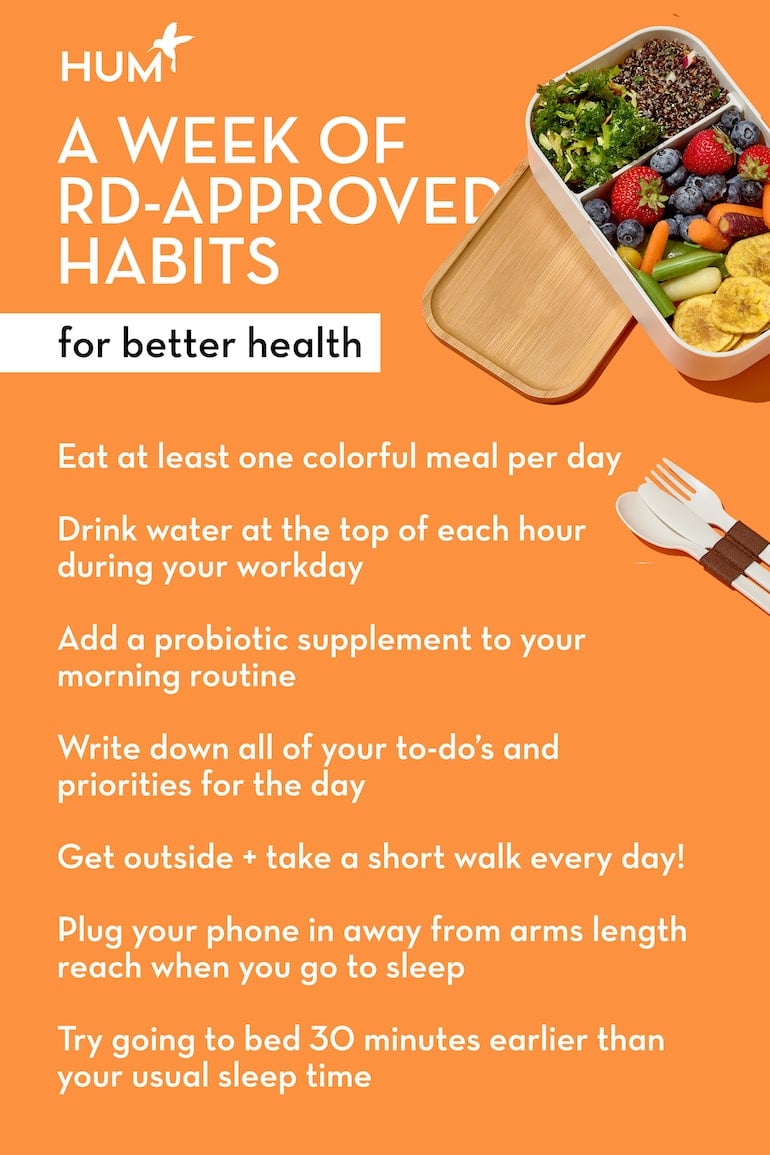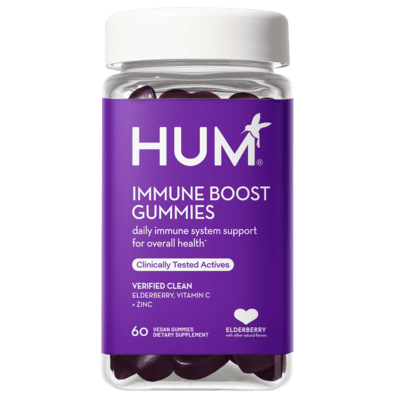Going back to school, returning to the office, or simply want to get your defenses up for the seasonal changes ahead? Now’s as good a time as any to evaluate your daily habits and make small changes that can improve your well-being in big ways.
Here, we’ll look at the four key pillars of immune health and share expert-recommended micro habits you can easily adopt. Think of them as forms of extra credit your immune system will appreciate!
Micro habits for Immunity
Your immune system is complex and interacts with other systems in your body, like your nervous system and digestive tract. So if you want to boost your immune health, your approach should also be comprehensive. Be sure to pay attention to the following pillars of health to boost your immune system on a consistent basis.
Better yet, integrate micro habits for each pillar into your daily routine for the best results daily and over time.
1. Nutrition
Sticking to a healthy diet is one of the simplest yet most effective ways to support immune health.
A well-rounded nutrition plan complete with macronutrients (carbs, fats, and protein) and micronutrients (like vitamins and minerals) can positively impact the immune cell function. Conversely, a lack of balanced nutrients can weaken your defenses, so don’t underestimate the power of what you eat.
Micro habits for diet and nutrition:
- Aim to eat the rainbow by having at least one colorful meal per day. A variety of vitamins, minerals, and fiber can help strengthen your immune system.
- Consider swapping your morning coffee for a smoothie rich in vitamin C.
- Prioritize antioxidants in your diet, such as vitamin C and elderberry, to boost immune function.
2. Gut Health
About 70 percent of immune cells reside in the gut, making gut health a clear pillar of immunity.
A healthy gut barrier not only protects your body against pathogens, but also produces antibodies and can help reduce inflammation.
In sum, a healthy gut equals greater immune function.
Micro habits to improve gut health:
- Be sure to drink enough water to help your digestive system work properly. If you need a built-in reminder to hydrate, set an alert to drink a glass of H2O at the top of every hour.
- Keep high-fiber snacks handy, such as berries, popcorn, and hummus. Fiber supports digestive health and can help curb cravings as well.
- Take a probiotic supplement to nurture the gut with beneficial bacteria and support your gut microbiome.
3. Stress
Stress negatively affects well-being in countless ways in both the present and long term.
The American Psychological Association (APA) cites pioneering research showing that stressed-out test-takers over a three-day period had fewer natural killer cells to fight pathogens. The onset of stress almost completely halted the production of immune-boosting gamma interferon, as well.
Over time, the APA also warns that stress “can ravage the immune system through too much wear and tear.” Stress weakens T cell response, which is an essential component of adaptive immunity.
While reducing stress is easier said than done, there are numerous options to help you stay calm, cool, and protected.
Micro habits to manage stress:
- Take short walks as much as possible, or longer ones when you can. Walking can lower your levels of cortisol (aka the stress hormone), even with bursts as short as 10 minutes a day. For extra credit, go hiking or simply walk in green spaces to reap the restorative benefits of Mother Nature.
- Stay organized and prioritize your to-do list to get ahead of stress and overwhelm.
- Take adaptogenic supplements to manage stress and improve relaxation over time.
4. Sleep
High-quality sleep is another major pillar of immunity.
Sleep improves immune health in several ways, such as by reducing the impact of stress, supporting T cell production and function, and helping to regulate inflammation. Getting enough quality sleep on a consistent basis can also reduce the likelihood of experiencing the common cold.
Micro habits to sleep better:
- Keep your phone out of the bedroom and limit screen time before bed. Blue light from your devices can suppress the secretion of melatonin and lower overall sleep quality.
- Exercise during the day to boost sleep quality come nightfall. Similarly, find new opportunities for movement when you can, such as by taking the stairs instead of the elevator.
- If you’re not getting enough rest, try going to bed about 30 minutes earlier than usual to fight the effects of sleep loss. If possible, aim to sleep for full sleep cycles, which last about 90 minutes each.
The Bottom Line
Immune health requires a team effort across multiple pillars to boost your defenses. Instead of taking action only once you start to feel under the weather, take a proactive approach by following these micro habits so their benefits can compound over time.
By taking a holistic approach to improving your overall health, you’ll know that you’ve aced your very own Immunity School test.
If you ever need a quick reminder to stay on top of your micro habits, be sure to save this infographic for future reference.










